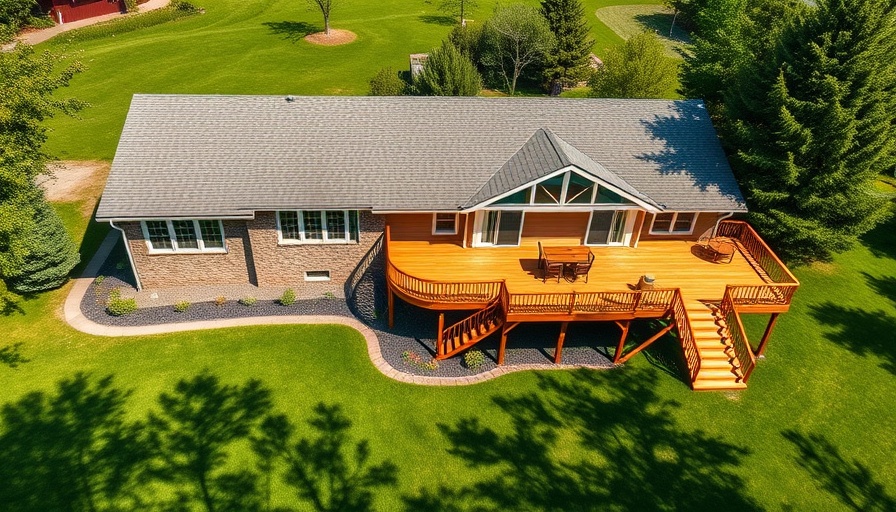
Understanding Basement Renovation Legality in New York
Renovating a basement has the potential to significantly increase a homeowner’s property value while adding usable living space. However, in the bustling urban landscape of New York City, the maze of legal requirements can appear daunting. For Brooklyn homeowners, understanding and adhering to these regulations ensures that basement renovations not only meet aesthetic desires but also comply with safety and legal standards.
Key Legislation Influencing Your Renovation
The first step in planning a legal basement renovation is familiarizing oneself with the relevant laws and regulations. The New York City Department of Buildings (DOB) oversees construction projects, issuing the required permits and ensuring that municipal codes are followed. This includes a range of regulations regarding the safety, accessibility, and habitability of residential properties.
New York’s stringent zoning laws play a pivotal role, particularly in areas like Brooklyn where population density can lead to greater scrutiny of construction modifications. Homeowners must be aware of their property’s zoning designation, which can dictate what alterations are permissible without special approvals.
Permits: Your Pathway to Compliance
Obtaining the correct permits before any renovation work begins is one of the cornerstones of a legal renovation. Homeowners wanting to transform their basements should apply for a building permit that corresponds to the scope of work planned. Minor cosmetic changes may require only a minor work permit, whereas extensive renovations—such as creating additional bedrooms or adding bathrooms—generally necessitate a full building permit.
It’s crucial for homeowners to understand that not securing the appropriate permits can result in fines, delays, and even the potential unearthing of serious legal consequences. Moreover, essential construction may have to be undone if found noncompliant, leading to wasted time and resources.
Safety Codes: The Cornerstone of Habitability
Adhering to safety codes during renovations is vital. The NYC Building Code prescribes specific structural and design standards to which all renovations must comply. Homeowners need to ensure their renovations do not only beautify their spaces but also create safe environments for their families and guests.
Some critical safety considerations include proper ventilation, adequate egress, and uniform electrical planning. Contractors with in-depth experience in navigating these codes can aid immensely in ensuring compliance and safeguarding the homeowner’s investment.
The Benefits of Consulting with Experienced Professionals
Now more than ever, engaging with a seasoned contractor who understands New York City’s complex real estate regulations will streamline the renovation process. Professionals equipped with the knowledge of local building codes can prevent common pitfalls and offer insights into effectively managing the approval process.
Such expertise is indispensable for avoiding potential roadblocks that arise with inspections by DOB personnel or issues related to tenant safety regulations that may apply—particularly in cases of multi-family units.
Future Trends in Basement Conversions
As urban living spaces continue to evolve, the trend toward maximizing every square inch of property has augmented interest in basement renovations. This inclination presents a significant opportunity for homeowners to enhance not only the functionality of their homes but also their marketability should they choose to sell.
Moreover, with ongoing discussions regarding climate change and urban heat effects, those considering basement renovations may lean towards upgrades that improve insulation and energy efficiency, further elevating the appeal of their properties on the market.
Legal and Zoning Considerations: Complex Yet Manageable
Ultimately, while the legal landscape surrounding basement renovations in New York can initially appear overwhelming, understanding the compliance requirements can demystify the process. Homeowners must arm themselves with knowledge—both through research and professional consultation—before embarking on renovation projects.
With the right preparations, imaginative design choices, and adherence to local laws, Brooklyn homeowners can successfully transform their basements while avoiding legal pitfalls. The key is a proactive approach in navigating the necessary permits and regulations.
In conclusion, understanding the ins and outs of basement renovation compliance is crucial for any Brooklyn homeowner looking to maximize their property's value. Start your research today, reach out to professionals, and ensure that your dream basement can be a reality without the headaches of legal repercussions.
 Add Row
Add Row  Add
Add 




 Add Row
Add Row  Add
Add 

Write A Comment